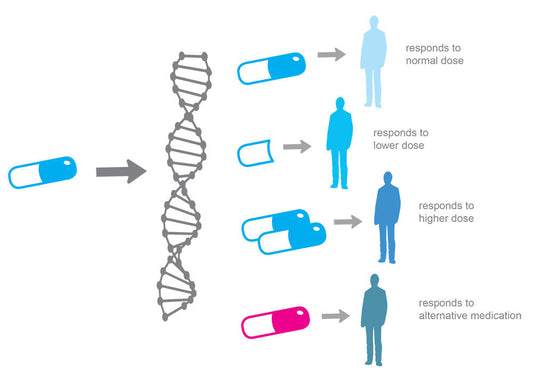NutriGen Analyses the Most Relevant Genes for Personalized Nutrition and Weight Management
Nutrition and weight management are key factors in maintaining a healthy lifestyle. However, many people struggle to find the right approach that works for their specific body and genetic makeup. Fortunately, NutriGen analyses the most relevant genes related to metabolic pathways involved in weight management and nutritional needs to provide personalized nutrition and weight management plans for each individual.
How NutriGen Works:
NutriGen uses a simple and easy-to-use DNA testing kit to analyze the most relevant genes related to metabolic pathways involved in weight management and nutritional needs. Once you receive your kit, you simply take a saliva sample and send it back to NutriGen's laboratory for analysis. In just a few weeks, you'll receive a comprehensive report that outlines your genetic predisposition to a range of factors related to nutrition and weight management.
The Benefits of NutriGen:
One of the main benefits of NutriGen is that it provides personalized nutrition and weight management plans based on your unique genetic makeup. This means that you'll be able to make informed decisions about your diet and lifestyle that are tailored to your specific needs.
Another benefit of NutriGen is that it can help you identify potential health risks before they become a problem. For example, if you have a genetic predisposition to high cholesterol levels, NutriGen can recommend specific foods and supplements that can help you manage your cholesterol levels and reduce your risk of heart disease.
What NutriGen Analyses:
NutriGen analyses the most relevant genes related to metabolic pathways involved in weight management and nutritional needs. This includes:
-
Gain weight, body fat, risk of being overweight and obese and energy metabolism.
-
Appetite, anxiety to eat, satiety, and predisposition to snacking.
-
Fat burn and control of cholesterol levels.
-
Lipid metabolism and its utilization to provide energy.
-
Carbohydrate metabolism, starch metabolization, and sensitivity in carbohydrate-rich food. In addition, it is analyzed the effect of carbohydrate intake in the regulation of cholesterol levels, LDL and HDL.
-
Alterations in serum lipids, such as LDL and HDL levels and triglyceride levels.
-
Glucose metabolism capacity.
-
Bitter, sweet, and salt taste sensitivities associated with food intake.
-
Antioxidant system and capacity.
-
Malabsorption or dysregulation in calcium, iron, selenium, magnesium, and sodium levels.
-
Most common food and beverage intolerances, such as caffeine, alcohol, lactose, and fructose.


















